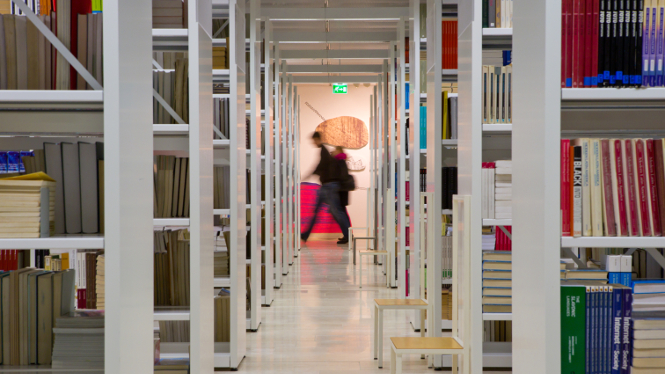The majority of children under school age in Finland are enrolled in day care or preschool, since most often both parents ...
In Finland, comprehensive school lasts for nine years and provides children with a basic education. All children permanently ...
A person can apply for upper secondary education with one's school-leaving certificate from the comprehensive school. ...
In Finland, higher education can be achieved either at the universities of applied sciences or at the universities. Studies at ...
After completing the comprehensive education a person can choose either the vocational school or the upper ...
A high number of vocational institutions in Finland offer a broad selection of vocational education and training programmes which give qualifications for practical professions. In the vocational education a young person can ...
On arriving in the country, immigrants are enrolled in an integration training programme which consists of studies in ...
As the immigrant youth, adult immigrants can also apply for vocational education and training in order to gain a ...
The unemployed immigrants, who have completed the integration training and achieved the level of Finnish language ...
The Finnish educational system aims that a person's degrees, studies or a professional work experience in other ...
Most municipalities in Finland have a public library, which is open to all residents. One can loan books or e.g. read different ...
The majority of children under school age in Finland are enrolled in day care or preschool, since most often both parents work outside of the home. As municipal residents, you may apply for a day care spot for your children. At day care centers they will learn the Finnish language, daily rhythms and important social skills. The centers' daily routine includes various activities such as games, exercise, music, arts and crafts and shared mealtimes. The children play both outdoors and indoors regardless of the season. The day care fee depends on the family's income.
Children often play outside in day care, and parents must prepare for this by dressing the children suitably according to weather conditions. They require both appropriate indoor and outdoor clothing.
Children have the right to pre-primary education for one year before their compulsory basic education begins, generally at the age of six. Municipalities organize pre-primary education for those children who are entitled to it. In pre-primary education, children will gain knowledge and skills that will aid their learning process in comprehensive school.

In Finland, comprehensive school lasts for nine years and provides children with a basic education. All children permanently living in Finland have an obligation to obtain a compulsory basic education. This obligation begins at the age of seven years and ends when the compulsory syllabus is completed, usually by the age of 16. Parents are responsible for making sure that their children attend school on a daily basis.
Comprehensive school consists of primary and lower secondary level education. The primary level includes grades 1 to 6 and the lower secondary level includes grades 7 to 9.
Children study many compulsory subjects in comprehensive school, such as mathematics, Finnish, English, history, biology, etc. All students in Finnish schools participate in physical education and art classes. There is plenty of arts and crafts in school, and visual materials are used abundantly in teaching. A student raises his or her hand when requesting permission to speak in class. Different languages are studied in school.
In comprehensive school, students receive all the educational materials such as books, pencils, erasers, etc for free. They also receive one free mid-day lunch. These are paid for with common funds, i.e. tax revenues.
School supplies such as school bags, pencil cases, and clothing for different weather conditions and classes must be purchased on your own. Finnish children do not have school uniforms, and thus parents are responsible for making sure their children have appropriate and practical clothes suitable to the season and weather conditions. For sports and physical education classes, children must have sports clothes and shoes.
Classes in Finnish schools are approximately 45 minutes in duration. In order to provide refreshment and aid in concentration, there are 15 minute recesses in between classes. Students go outside into the school yard during recesses to spend time together, play, and move around.
Due to weather conditions, outdoor clothing and shoes are left in the corridor when entering the school building. One cannot go outside without warm clothing and shoes.
Immigrant children who have just arrived in Finland are provided with preparatory teaching that prepares them for comprehensive school. Students study the Finnish language and other subjects, and strengthen their reading and writing skills.
In comprehensive school, an immigrant child is placed in that grade which best suits his or her age, knowledge and skills. Additionally, tutoring in different subjects can be arranged for newcomers. Municipalities may provide immigrant children with education in their native languages, as well.
Religion is also a subject in Finnish comprehensive school and high school. Its teaching is organized according to the majority's religious denomination. A child's parents have the right to request teaching according to their own religious denomination.
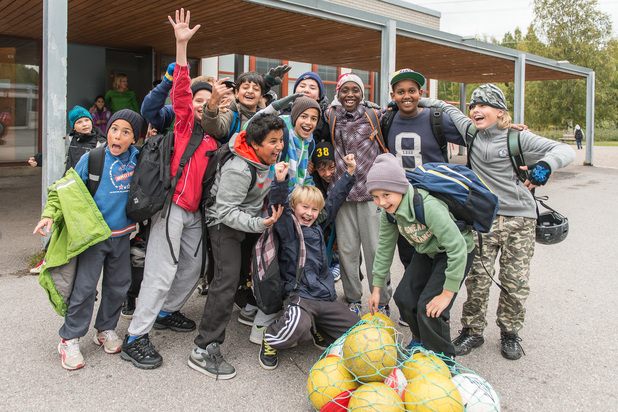
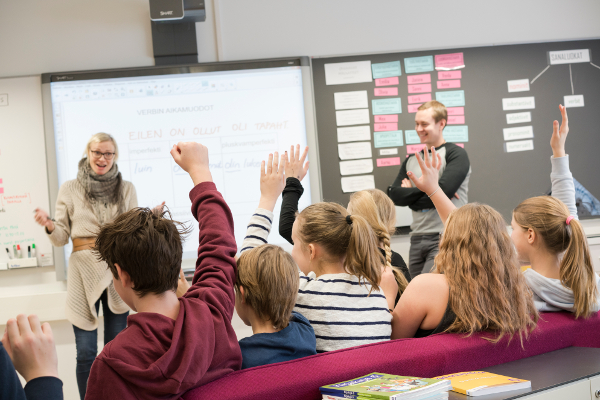
A person can apply for upper secondary education with one's school-leaving certificate from the comprehensive school. Education at the upper secondary level is broad and theoretical. The curriculum includes general subjects such as languages, history, psychology, mathematics, physics, and chemistry. The studies can be completed within 2-4 years and aims at the final national examinations in which one's general knowledge is tested on a broad scale. On completing the upper secondary school the student receives a diploma. After successfully completing the matriculation examinations, one also receives a matriculation examination certificate. Upper secondary school is a prerequisite for the studies at the higher education level.
In Finland, higher education can be achieved either at the universities of applied sciences or at the universities. Studies at the universities of applies sciences have a professional focus. The studies can be completed within 3 to 4 or 5 years. The requirement for the admission is either the upper secondary or vocational education certificate.
Most of the universities have a science-based curricula in Finland. Most university degrees consist of a Bachelor's degree, followed by a Master's degree. Higher education institutions also offer degree programmes in English.
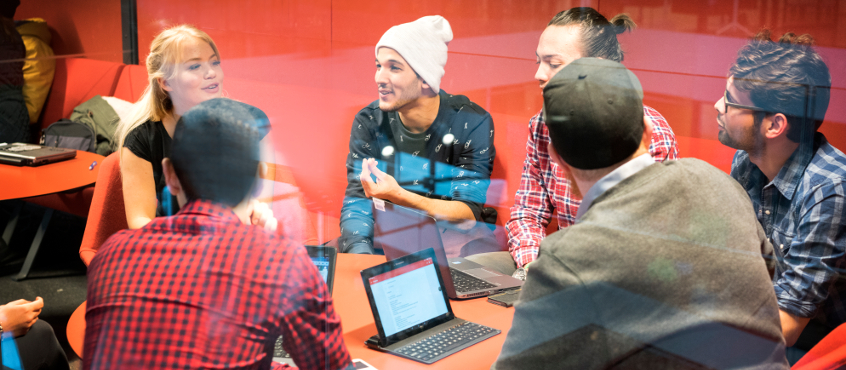
After completing the comprehensive education a person can choose either the vocational school or the upper secondary school. If an immigrant youth needs extra studies in Finnish language or other basic education subjects, he or she may attend 10th grade in the comprehensive education or a year in preparatory vocational training.
In the preparatory vocational training the student strengthens Finnish language skills, studies working life skills and different professions, and prepares for further vocational studies. During preparatory training the student will have an opportunity to identify his or her personal professional strengths and interests.
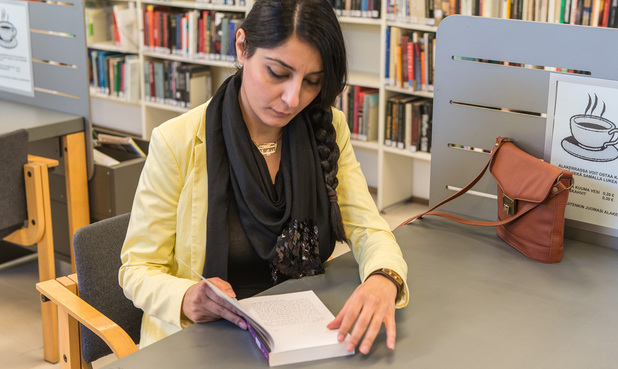
A high number of vocational institutions in Finland offer a broad selection of vocational education and training programmes which give qualifications for practical professions. In the vocational education a young person can study and gain a vocational qualification, which takes approximately 2-3 years. Vocational education is very practical. The students attend a plenty of trainee periods and practical studies at different workplaces. One can apply for a vocational training either with a school-leaving certificate from the comprehensive school or with an equivalent educational certificate. Because the language of instruction in vocational training programmes is Finnish, it is important that individuals aiming at vocational studies learn Finnish at the earliest stage as possible.
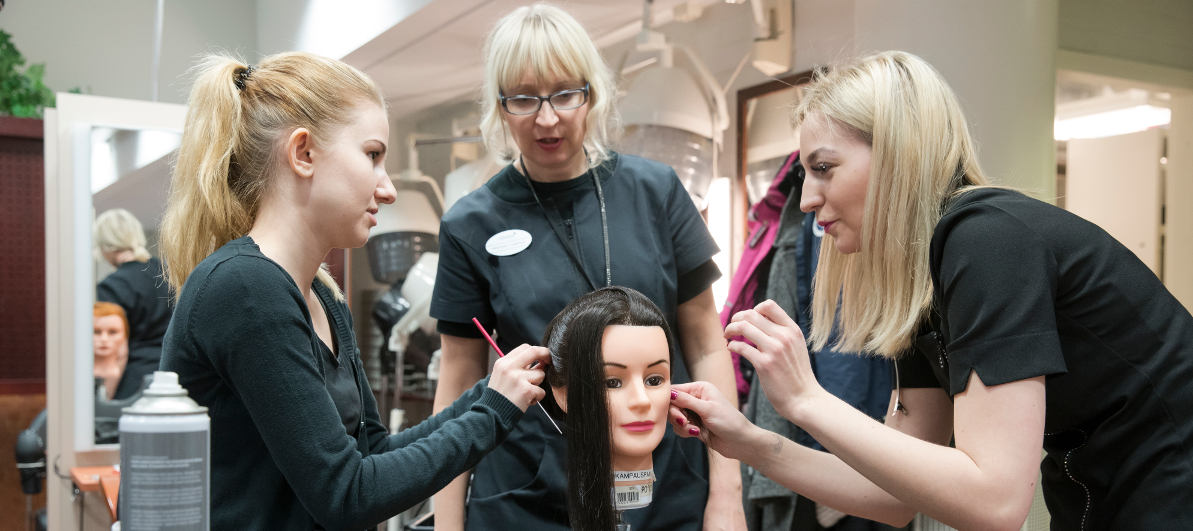
On arriving in the country, immigrants are enrolled in an integration training programme which consists of studies in Finnish language, social studies, everyday life skills, cultural knowledge, as well as study advice and counselling for further studies and employment. Additionally, the programme includes trainee periods at a workplace. Integration training usually lasts for a year. During this year, it is important to make a personal plan for further studies which aims at employment in Finland.
As the immigrant youth, adult immigrants can also apply for vocational education and training in order to gain a professional qualification needed in the Finnish labour markets. An applicant is eligible to apply if he or she has a certificate from a comprehensive school or an equivalent educational certificate, as well as sufficient skills in the Finnish language. Completing a vocational degree in Finland is recommended, because it strengthens an immigrant's position in the labour market. It is important to find out about vocational education opportunities in the region of your residence in Finland.
The unemployed immigrants, who have completed the integration training and achieved the level of Finnish language required for the vocational education, are eligible for a labour market training. The labour market training is practically oriented and consists of variety of subjects, and most often leads to a full or partial vocational qualification.
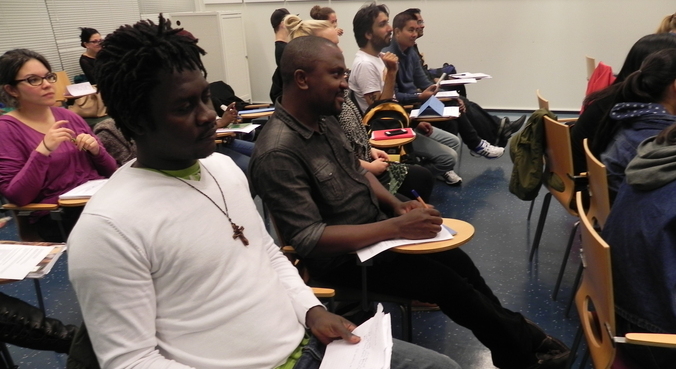
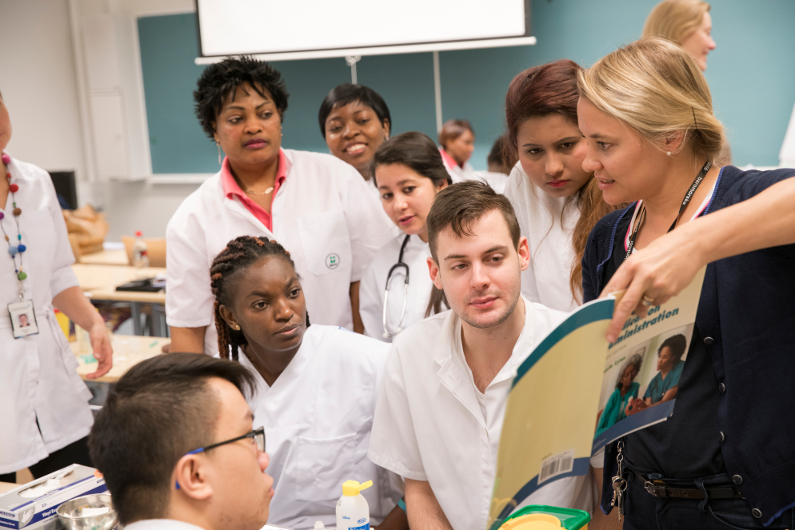
The Finnish educational system aims that a person's degrees, studies or a professional work experience in other countries form a basis for the planning one's further education in Finland. If the immigrant has a degree completed in a foreign country, he or she may apply for its accreditation in Finland from the Finnish National Board of Education (FNBE).
The FNBE approves the eligibility of a foreign degree in the context of the Finnish labour markets and decides the required further studies. In order to enable experienced professionals to practice their profession in the Finnish working life a few professional qualification training programmes have been offered in Finland. These include e.g. qualification training for nurses.
It is important that all incoming immigrants bring all the original or certified copies of basic education, vocational education, degree programmes and work experience with to Finland. It is best to get these copies certified and translated into English already in the country of origin.
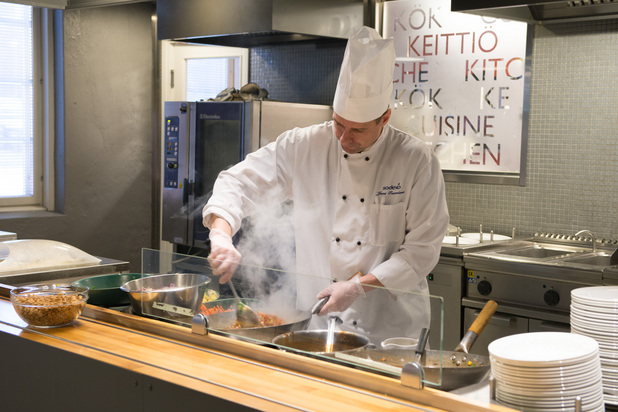
Most municipalities in Finland have a public library, which is open to all residents. One can loan books or e.g. read different magazines in different languages for free. One can use the internet and study in the library as well. One must apply for a library card in order to loan the books in the library.
